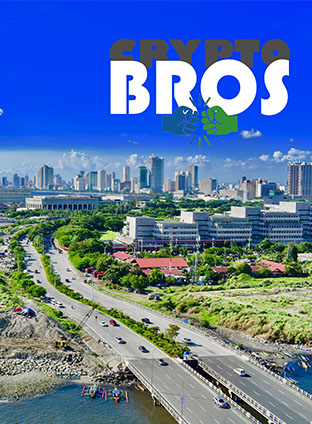The groundbreaking concept of decentralized finance, or DeFi, has gained enormous popularity in recent years. DeFi provides a decentralized financial environment founded on blockchain technology that challenges centralized power structures. This essay discusses how traditional finance may evolve as a result of the rising adoption of DeFi.
Understanding DeFi
Decentralized financial applications and services, or DeFi, run without the aid of banks or other centralized organizations as intermediaries. By employing smart contracts and blockchain technology, DeFi enables customers to access various financial services, such as lending, borrowing, trading, and investing, with greater transparency, security, and autonomy.
DeFi’s Rapid Ascension
DeFi has grown in quite impressive ways. Since its introduction, the total value locked (TVL) in DeFi protocols has increased to billions of dollars. This exponential increase can be ascribed to a number of reasons, including:
DeFi removes barriers and gives those who are normally underserved by the banking system power by making financial activities available to everyone with an internet connection.
Financial Inclusion
People without access to traditional financial services have new prospects because to DeFi, especially in underdeveloped countries. This inclusive quality allows them to participate in the realm of financial markets on their own terms.
Staking and Yield Farming
DeFi systems provide users enticing incentives like yield farming and staking, allowing them to make passive income by feeding liquidity to protocols or locking up their digital assets.
The fact that DeFi protocols are commonly developed on open-source systems like Ethereum promotes interoperability. This interconnectedness serves as a catalyst for innovation and the development of new financial products and services.

Changing the Financial Status Quo
As seen by its rising popularity, DeFi has the potential to significantly disrupt conventional finance in the following areas:
Decentralization
DeFi reduces fees and transaction costs by doing away with the need for intermediaries like banks or brokers. This disintermediation, which also provides consumers greater control over their money, tests the present financial system.
Improved Security
Cyberattacks and fraud are dangers to traditional finance. DeFi, on the other hand, employs blockchain technology, which provides high security and makes it very difficult for hackers to corrupt user money.
Transparency
Transparency issues in traditional finance can lead to distrust. DeFi resolves this issue by utilizing the built-in transparency of blockchain technology and providing users with access to a public record. By being transparent, participants gain trust and confidence.
Accessibility Worldwide
DeFi operates without limitations based on a particular nation. Anyone, everywhere may participate in a wide range of financial activities thanks to this accessibility, regardless of where they reside or how much money they have.
Innovation in Finance
DeFi acts as a center for the development of novel financial products and services. Tokenization of assets, stablecoins, and decentralized exchanges (DEXs), to mention a few, are examples of decentralized finance (DeFi) concepts.

Threats and Issues
Although DeFi offers a lot of potential, there are significant risks and challenges that must be overcome before it can be extensively used:
Regulational Concerns
DeFi is beyond the scope of traditional financial institutions, making it challenging for regulatory frameworks to keep up with this rapidly growing sector. Innovation and regulation must work together harmoniously to achieve sustainable growth.
Security Flaws in Smart Contracts
DeFi cannot function without smart contracts, yet they are not error-proof. Coding errors or flaws might lead to significant financial losses. Auditing and testing of methods is necessary to lower hazards.
Market Volatility
DeFi has a direct impact on cryptocurrency volatility. The significant fluctuations in the value of digital assets may have an effect on the stability and reliability of DeFi protocols. Investment diversification and risk management strategies are essential for lowering this risk.
Scalability
The capacity of blockchain networks, especially Ethereum, to scale has limited DeFi. High gas costs and overburdened networks might harm user experience and limit ecosystem expansion. Alternative blockchains and layer 2 solutions are being developed to solve these scaling problems.
User Instruction
DeFi might be challenging for newcomers to understand. Due to ignorance and a lack of education, decentralized finance may have trouble being more broadly recognized. Offering user-friendly interfaces, educational information, and promoting wise investment habits are essential to breaking down this barrier.
Future Potential and Prospects
The rising popularity of DeFi raises the possibility of a paradigm change in the financial sector. As the ecosystem continues to grow, several possibilities and trends emerge:
Conventional financial institutions are aware of the potential of DeFi and are investigating ways to integrate it into their present infrastructure. The DeFi space would become more stable, legitimate, and liquid as a result of institutional adoption.
Interoperability Across Chains
By developing cross-chain interoperability protocols, value might be moved across different blockchain networks without any hiccups in communication. In the DeFi ecosystem, this would enhance user options, boost liquidity, and encourage innovation.
Guidelines and Compliance
Regulatory frameworks will undoubtedly evolve as DeFi gains popularity in order to provide more transparency and protect customers. If innovation and appropriate restrictions are balanced, DeFi will grow while remaining safe from future dangers.
Integration of Real-World Assets
DeFi can tokenize tangible assets like real estate or conventional financial instruments to enable fractional ownership and liquidity. Previously inaccessible and illiquid assets could become more readily available as a result of this integration, opening up new investment options.
Due to advancements in user interfaces, user experience, and security protocols, DeFi will become more accessible to more people and more user-friendly. This will play a crucial role in encouraging the acceptance and expansion of decentralized finance.
Decentralized Finance (DeFi) has become extremely popular, and for good cause. As its use is reliant on comprehension of the underlying technology, this ground-breaking new technology has the potential to be one of the finest catalysts for financial inclusion. It is poised to alter the way we think about finances. DeFi is therefore well positioned for financial inclusion by giving individuals a chance to learn about blockchain and its possibilities.
DeFi is a blockchain-based platform that executes financial transactions using smart contracts. Self-executing contracts, or smart contracts, are those that have been designed to take effect when specific criteria are satisfied. They are executable without the aid of middlemen and are transparent and unchangeable.
This indicates that there aren’t many obstacles to using DeFi, and anyone with an internet connection can use it.
DeFi’s ability to facilitate financial transactions without the need of middlemen is one of its main benefits. This implies that there is no need for banks or other financial organizations since individuals may transmit money to one another directly. For those who do not have access to regular financial services, this is especially crucial. DeFi may be able to give access to financial services to the 1.7 billion individuals who are still not banked, according to the World Bank.
DeFi further enables cross-border financial transactions without the need of costly and time-consuming middlemen. For those who reside in underdeveloped nations, where the cost of remittances might be prohibitively high, this is especially crucial. People may send and receive money across borders using DeFi quickly, simply, and for a lot less money than they would pay with conventional remittance services.
The ability to conduct financial transactions without requiring identification verification is another benefit. For those who do not have access to official identity documents, this is especially crucial. People in many developing nations struggle to obtain conventional financial services because they lack birth certificates or other kinds of identity.
Financial services are more widely available to a larger spectrum of individuals because to DeFi’s ability to execute transactions without requiring identity documents.
DeFi is also more open and honest than conventional banking services. All transactions are tracked on the blockchain, making it simple to audit and confirm them. For those who reside in nations with high levels of corruption, this is especially crucial. People who use DeFi may be certain that their transactions are safe and open, which promotes confidence in the financial system.



































